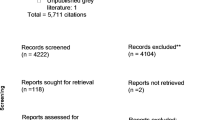Abstract
Islam is a religion that was established in the 7th century by the Prophet Muhammad who was commissioned as a Messenger of God. It is also the modern or latest version of the message sent by God through some prophets, e.g. Adam, Noah, Abraham, Moses and Jesus. Not only is it associated with the mental aspect, however, it also impacts every part of life, from eating and slee** to working and playing. It can be, therefore, considered a way of life.
Meanwhile, one's lifestyle has recently come to have great meaning especially in the developed countries. Methods to assess lifestyle are suggested by some authorities such as Breslow and Morimoto. Accordingly, we have tried to investigate whether Muslims, the followers of Islam, have a desirable lifestyle as defined in today's terms, i.e. the cultural dependence of the lifestyle formation.
As a result, Muslims seeking to live in accordance with the doctrine of Islam may have a relatively good lifestyle. Islam may also be associated with the relief from the mental stress and give Muslims a guideline to live a happier life.
Similar content being viewed by others
References
Katakura M. “Islam no nichijo-sekai” (in Japanese). Tokyo: Iwanarni Co. Ltd., 1991.
Belloc NB, Breslow L. Relationship of physical health status and health practices. Prev Med 1972; 1: 409–21.
Belloc NB. Relationship of health practices and mortality. Prev Med 1973; 2: 67–81.
Kusaka Y, Kondou H, Morimoto K. Healthy lifestyles are associated with higher natural killer cell activity. Prev Med 1992; 21: 602–15.
Hagihara A, Morimoto K. Personal health practices and attitudes toward nonsmokers' legal rights in Japan. Soc Sci Med 1991; 33: 717–21.
Musaiger AO. Socio-cultural and economic factors affecting food consumption patterns in the Arab countries. J Roy Soc Health 1993; 113: 68–74.
Al-Mannai A, Dickerson JWT, Morgan JB, Khalfan H. Obesity in Bahraini adults. J Roy Soc Health 1996; 116: 30–40.
Al-Awadi F, Amine EK. Overweight and obesity in Kuwait. J Roy Soc Health 1989; 109: 175–7.
Musaiger AO. Nutritional disorders associated with affluence in Bahrain. Family Practice 1990; 7: 9–13.
Itagaki Y, supervisor. Yarnagishi T, Iizuka M, editors. “Islamekai ga yoku wakaru Q & A 100” (in Japanese). Tokyo: Akishobo Co. Ltd., 1998.
Al-Sudairy A, Howard K. Dietary habits of technical and vocational students in Riyadh, Saudi Arabia-1 Meal skip**. J Roy Soc Health 1992; 112: 217–8.
Al-Sudairy A, Howard K. Dietary habits of technical and vocational students in Riyadh, Saudi Arabia-II Eating between meals. J Roy Soc Health 1992; 112: 271–2.
Oshima N: “Islam kara no hasso” (in Japanese). Tokyo: Kodansha Co. Ltd., 1981.
Okakura T: The new guide to the spirit of Islam (in Japenese). Tokyo: PHP-Kenkyusho 1994.
Toda M, Morimoto K. Effects of Ramadan fasting on the health of Muslims (in Japanese). Jpn J Hyg 2000; 54: 592–6.
Kodama S. “Arab-minzoku no seikatsu-bunka” (in Japanese). In: Kodama S, Osawa T, editors. “Asia-shominzoku no seikatsu-bunka”. Kyoto; Aunsha, 1990: 259–82.
Ali MES, Felimban FM. A study of the impact of Arabic coffee consumption on serum cholesterol. J Roy Soc Health 1993; 113: 288–91.
Metintas S, Sariboyaci MA, Nuhoğlu S, et al. Smoking patterns of university students in Eskişehir, Turkey. Public Health 1998; 112: 261–4.
Awidi AS. Patterns of cigarette smoking in Jordan: A study of Greater Amman Area. Ann Saudi Med 1991; 11: 144–7.
Rowlands D, Shipster P. Cigarette smoking amongst Saudi schoolboys. Saudi Med J 1987; 8: 613–8.
Taha A, Beher A, Noah M, Saced A, Al-Harthy S. Smoking habits of King Saud University students in Riyadh. Ann Saudi Med 1991; 11: 141–3.
Saeed A, Taha A, Al-Shahri A. Smoking habits of physicians in Riyadh, Saudi Arabia. Saudi Med J 1989; 10: 508–11.
Bener A, Gomes J, Anderson JAD. Smoking habits among physicians in two Gulf countries. J Roy Soc Health 1993; 113: 298–301.
Afifi ZEM. Daily practices, study performance and health during the Ramadan fast. J Roy Soc Health 1997; 117: 231–5.
Author information
Authors and Affiliations
Corresponding author
Rights and permissions
About this article
Cite this article
Toda, M., Morimoto, K. Health practice in Islam —The cultural dependence of the lifestyle formation—. Environ Health Prev Med 5, 131–133 (2001). https://doi.org/10.1007/BF02918287
Received:
Accepted:
Issue Date:
DOI: https://doi.org/10.1007/BF02918287




